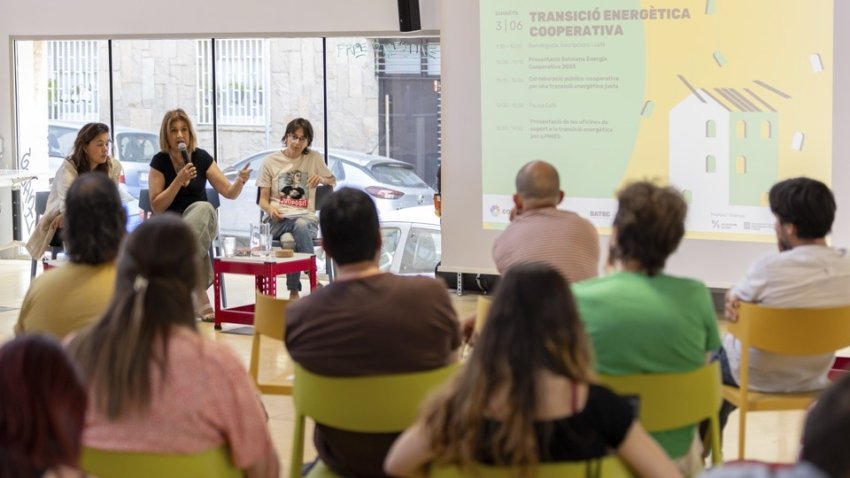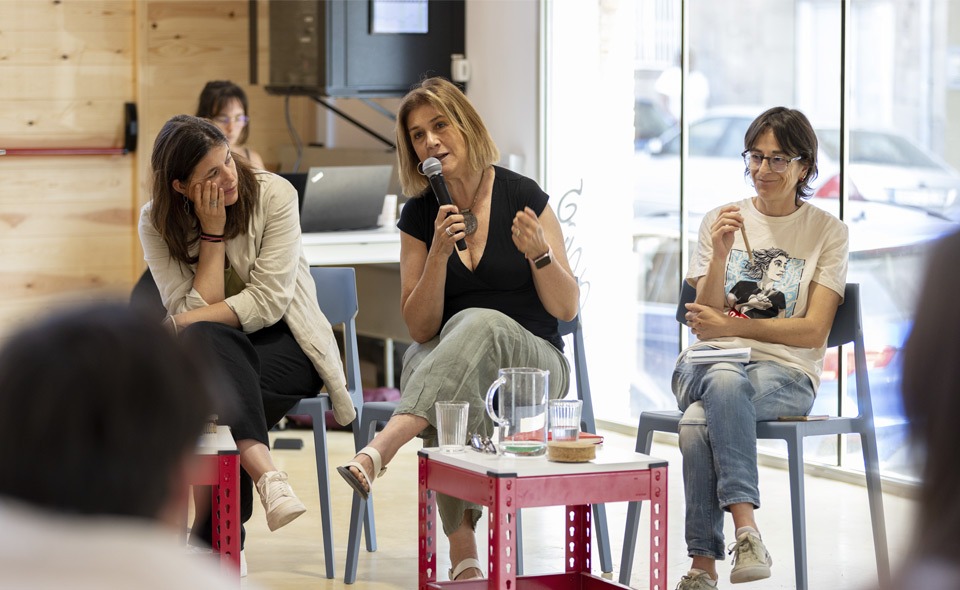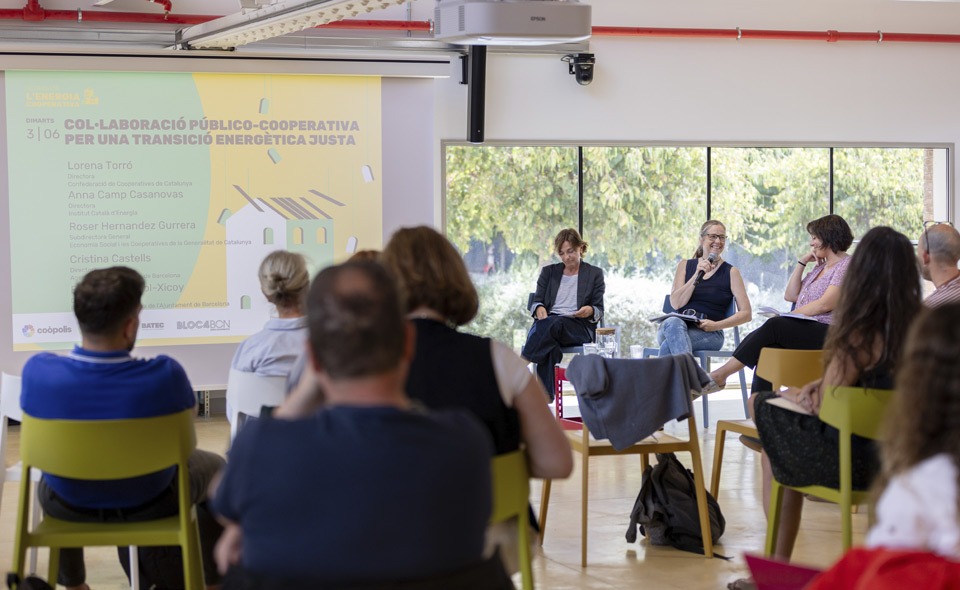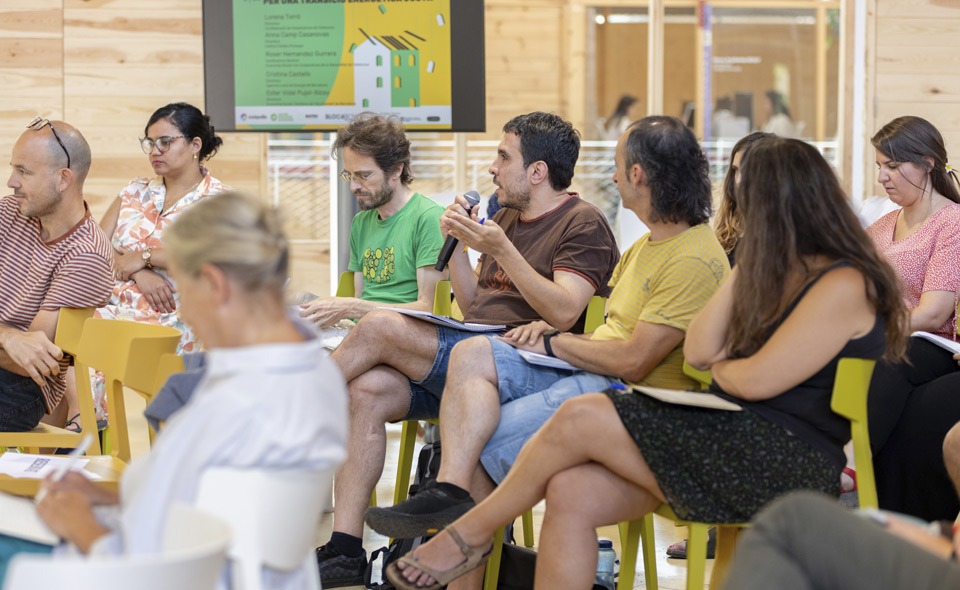
Energy transition with cooperative leadership and public collaboration
Her #Setmanaegiacoop has begun with a Round table focused on public-co-operative collaboration As a key tool to move towards a Energy transition that is fair, participatory and rooted in the territory.
Lorena Nougat, from Confederation of Cooperatives of Cataloniaemphasized the European project respondet, which has served to explore models that combine energy transition and circular economy. This project allowed to raise challenges and conclusions directly to the European Commission, helping to mark the cooperative and public agenda around Five main axes: Strengthening of the model, training and research, articulation and positioning, legislative aspects, and sustainability and funding. Nougat emphasized that this plan is constantly updated to ensure that it remains useful and connecting the entire cooperative movement.
Roser HernándezDeputy Director -General of Social Economy and the Cooperatives of the Generalitat de Catalunyahas emphasized the need for an energy transition that does not leave anyone behind and that is really fair. Inside European project Revosa lobby was promoted to defend this model in Europe, with the proposal of a European meeting of energy communities. Hernández has also underlined the Importance of cooperative Athenians and urban communalities As key agents to disseminate and send the message of the fair energy transition to all citizens. A fundamental challenge is to transversalize the social and solidarity economy in this process, and value the public policies that cross and enrich this work, especially through Unique projects.


The director of theCatalan Institute of Energy, Anna Camp, has focused his intervention in horizontal and vertical governance, insisting on the need to take root actions in the territory. It has valued various tools that are already available to the public to facilitate the planning and promotion of the transition, such as the new ledge Community Energy, which is used to exchange information and identify the role and state of each energy community. Camp has also indicated the difficulties that some pilot projects find, often due to municipal, legal or distributors barriers, and emphasized the great potential of energy rehabilitation. Finally, he emphasized the need that The administration provides tools and maintains an open dialogue with the energy communities To ensure effective governance and adapted to local needs.
Cristina Castellsdirector of theLocal Energy Agency in Barcelonahas been forceful: “The energy transition must be done yes or yes. We have the challenge of getting self -consumption a reality in Barcelona. ” He emphasized that citizens need to be empowered, offering useful energy services and generating a new culture of consumption. In the fall, it plans to give up a roof per district to expand the model.


Ester Vidal, Director of Social and Solidarity Economy (ESS) of theBarcelona City Councilhas focused on the key role that the administration can play in the promotion of the ESS as the engine of energy transition. L ‘#essbcn2030 —A joint strategy between the consistory and the Social Economy Association of Catalonia – identifies the eco -social transition as one of its five main challenges. Vidal also spoke of the ESS 2024-2027 promotion plan, which is committed to climbing projects, facilitating citizen knowledge and fostering transversality within the City Council. Has highlighted resources such as subsidies “We strengthen”, “We promote what you do” and “Create work”, as well as reference facilities such as the BLOC4BCN, headquarters of the Cooperative Pol for the Ecosocial Batec transition.
Gala of Elia, from Bateche has collected several ideas in the morning:
1. The fact of consume less and consume sustainableas well as the importance of reviewing our consumption.
2. The Energy communities are necessary and spearhead but not enough. It is necessary to talk about the role of cooperativism in promoting energy transition in other sectors and different ruralities.
3. The Emergency that administrations are not a brake on change.
Also emphasized the sector feminization In this edition, Visiting the leadership of many women in both the presentation and the organization of the event.
To close, the session had a turn of interventions of the “row 0” with voices of the Diputación de Barcelona, AMEP, ARCA, Osona Energy And other key players who reinforced the message: the energy transition is not only needed, but must be collective, rooted in the territory and led by transformative models such as the cooperative.











